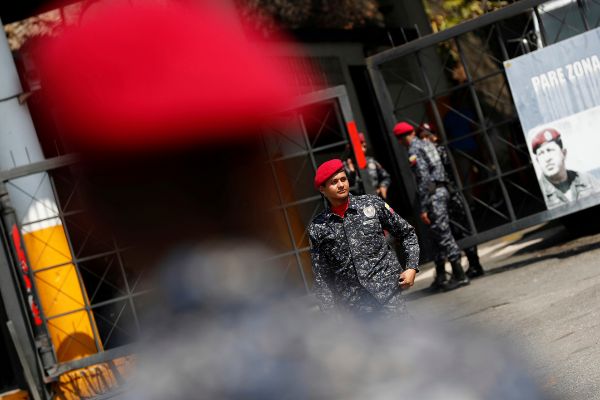- Report: The United Nations confirms that in Venezuela there is persecution against critics, political prisoners, extrajudicial executions and torture
Tortures against prisoners are already part of everyday life in Venezuela, to the scandal of human rights activists and silence of the government and its national and international allies. The annual report of the NGO Provea , one of the most respected in the country, accredits the "State terrorism" applied by the Bolivarian revolution to stay at all costs in power: during 2019 at least 574 people suffered torture and, among them , 23 died.
Since the arrival of Nicolás Maduro in 2013, the death of 72 people under torture is recorded. Seven years during which not only the country suffers the greatest social, economic and political crisis of the last century in the continent , but also the "legalization" of impunity and the spraying of human rights. "Torture has become a widespread and systematic practice that is committed daily in most prisons and detention centers against common prisoners and persons deprived of liberty for political reasons," Provea said.
Inti Rodríguez, one of Provea's principal investigators, provided more figures for the horror: 5,232 violations of personal integrity , 852 victims of cruel treatment, 1,033 injured, 1,804 illegal raids and 810 threats and harassment.
Torture as an exemplary punishment has been "institutionalized and is part of the repressive repertoire used by the Maduro dictatorship," Provea denounced without contemplation. "It's increasingly bloody," added the Casla Institute, led by activist Tamara Suju in coordination with the Organization of American States (OAS). "They are systematic," confessed General Cristopher Figuera , former head of the Bolivarian Intelligence Service (Sebin), after fleeing to the US. Precisely at the headquarters of the political police the opposition councilor Fernando Albán died after suffering torture, according to the allegations made by his relatives and international organizations.
The murder of the capital Rafael Acosta went around the world last June and confirmed that government agents end their ill-treatment against the military , with the aim of chasing away any protest or rebellion and frightening relatives, colleagues and lawyers. A strategy that continues today and has multiplied, according to Provea.
The number of people tortured in 2018 last year has increased fivefold, from 109 to 574 , so it also exceeds the record of 2014, with 180 victims following anti-government protests. During 2019 the challenge of Juan Guaidó and the democratic Parliament against the revolution was carried out, to which is added the sharpening of social control through terror and economic policies. Neither the Prosecutor's Office nor the Ombudsman, controlled by the revolution, has provided data on this.
Young and poor
The NGO ensures that the historical profile of the tortured is maintained: young and poor men, mostly convicted or prosecuted for common crimes (74%) and military (21%) accused of conspiring against Maduro; almost 4% were tortured after exercising their right to peaceful demonstration.
Provea's investigation goes deeper into what Michelle Bachelet, UN High Commissioner for Human Rights, explained in her historical report: in Maduro prisons electric power is applied, suffocation with plastic bags, drowning drills are carried out, beatings, sexual violence, deprivation of water and food, forced postures and exposure to extreme temperatures.
The activist Suju has aired this week what is the last recipe against political prisoners at the General Directorate of Military Counterintelligence (DGCIM): they hooded the prisoners and took them out in a jeep "at full speed to disorient them and get hit on the way and then lock them in the tombs that the basements have turned into. They put them in three by two. They bathe with a glass of water and receive no sun or natural air. " It is precisely at the Caracas headquarters of the DGCIM in North Boleíta where 116 victims of torture, soldiers detained for conspiracy, terrorism and treason are grouped together.
The Inter-American Commission on Human Rights (IACHR) has announced that it will land next Monday in Caracas to conduct a field visit (on-site observation) to gather more information about violations of political and civil rights. The activists fear that the IACHR envoys will be deported from the Caracas airport, although they have already prepared their response: they will travel to the border with Colombia to attend to the victims 'in situ'.
According to the criteria of The Trust Project
Know more- Nicolás Maduro
- Venezuela
- Juan Guaidó
- Colombia
- World
Venezuela Juan Guaidó travels by surprise to Bogotá, at the start of an international tour to boost his leadership
Crisis in Venezuela Juan Guaidó ties the support of Angela Merkel and Emmanuel Macron
Venezuela Citizens denounces that the Government may be meeting "in secret" with Nicolás Maduro ministers

